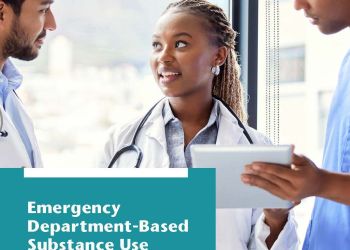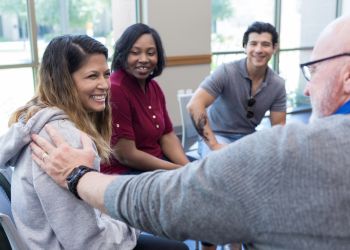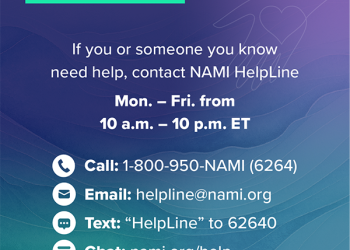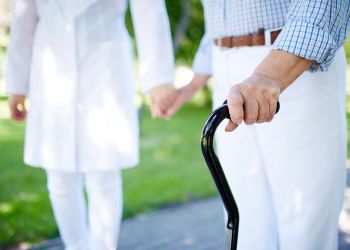Overdose, Injury, and Violence Prevention
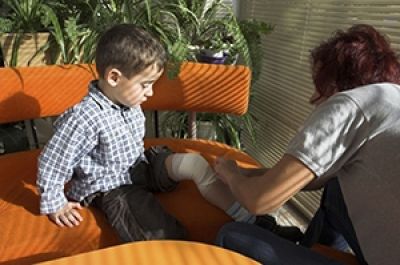
NACCHO’s work spans the intersecting fields of overdose, injury, and violence prevention. From mitigating adverse childhood experiences and identifying and addressing crosscutting risk and protective factors to supporting the integration of health equity in drug overdose prevention and response strategies,
NACCHO recognizes injury and violence as public health issues and draws attention to the critical role that local health departments play in protecting and improving community health and safety.
Through our work with local communities, we elevate the need to address the historic and ongoing impacts of institutional and structural oppression and racism that shape generational health disparities and support community-driven solutions.
To see our current policy statements, visit the NACCHO policy page.
Latest News
NACCHO's Injury & Violence Prevention (IVP) Program strengthens capacity of LHDs to effectively address the causes of injury and violence in their communities by creating learning opportunities, developing tools and resources, providing technical support, and facilitating peer exchange.
The following policy statements demonstrate NACCHO's support for comprehensive Overdose, Injury and Violence prevention efforts at a national level
NACCHO's Child Maltreatment Prevention Policy Statement
NACCHO's Graduated Driver's License Policy Statement
NACCHO's Injury and Violence Prevention Policy Statement
NACCHO's Cannabis Use Policy Statement
NACCHO's Safety Belts Policy Statement
NACCHO's Older Adult Falls Prevention Policy Statement
NACCHO's Opioid Epidemic Policy Statement
NACCHO's Suicide Prevention Policy Statement
NACCHO's Traumatic Brain Injury Policy Statement
NACCHO's Universal Motorcycle Helmet Policy Statement
NACCHO's Youth Violence Prevention Policy Statement
With support from the Centers for Disease Control and Prevention (CDC), NACCHO is seeking a consultant to develop and disseminate effective and research informed messaging through a national anti-stigma campaign that amplifies the humanity, stories and strengths of people who use drugs to promote a narrative of support, opportunity, and shared community.
The comprehensive campaign should address social stigma and take a holistic approach to solutions for communities to support harm reduction and reduce stigma and discrimination for people who use drugs. We hope to offer an alternative to the pervasive narrative that villainizes people who use drugs, promotes criminal responses, and perpetuates the racism that has been built into the social constructs of our media and society around drug use.
Please see application requirements and full details of the project in the Requests for Proposals.
Applications must be submitted no later than December 15th, 2023, by 5:00 pm Eastern Time. Please submit your application as a PDF to NACCHO’s Overdose, Injury, and Violence Prevention team at [email protected] with the subject line, Overdose and Harm Reduction: Communications and Media Consultant application.
To learn more about Injury & Violence Prevention, share LHD resources, or inquire about NACCHO's Injury & Violence Prevention portfolio, please contact us at [email protected].
Community Health Program
Stacy Stanford
Senior Director, Overdose, Injury, and Violence Prevention
JavaScript is required to reveal this message. / Email
Community Health Program
Amie Myrick
Lead Program Analyst, Injury and Violence Prevention
JavaScript is required to reveal this message. / Email
Community Health Program
Anistia Rugama
Lead Analyst, OD Prevention
JavaScript is required to reveal this message. / Email
Community Health Program
Audrey Eisemann
Senior Program Analyst, Overdose, Injury, and Violence Prevention
JavaScript is required to reveal this message. / Email
Community Health Program
Bahman Naraghi
Director of Project Management, Overdose, Injury, and Violence Prevention
JavaScript is required to reveal this message. / Email
Community Health Program
Bailey McInnes
Program Analyst, Overdose Prevention
JavaScript is required to reveal this message. / Email
Community Health Program
Caroline Snyder
Director, Injury and Violence Prevention
JavaScript is required to reveal this message. / Email
Community Health Program
Camille Adams
Senior Program Analyst, Injury and Violence Prevention
JavaScript is required to reveal this message. / Email
Community Health Program
Damaris Young
Associate Project Manager, Overdose, Injury, and Violence Prevention
JavaScript is required to reveal this message. / Email
Community Health Program
Emily Winkelstein
Director, Overdose Prevention
JavaScript is required to reveal this message. / Email
Community Health Program
Francis Higgins
Senior Program Analyst, Overdose Prevention
JavaScript is required to reveal this message. / Email
Community Health Program
Gezae Berhane
Associate Project Manager, Overdose, Injury, and Violence Prevention
JavaScript is required to reveal this message. / Email
Community Health Program
Hannah Loynds
Program Analyst, Injury & Violence Prevention
JavaScript is required to reveal this message. / Email
Public Health Infrastructure and Systems
Jasmine Akuffo
Senior Program Analyst, Health Equity
JavaScript is required to reveal this message. / Email
Community Health Program
Jessica Vines
Senior Program Assistant, Overdose Prevention
JavaScript is required to reveal this message. / Email
Community Health Program
Katherine Palm
Senior Program Analyst, Injury & Violence Prevention
JavaScript is required to reveal this message. / Email
Community Health Program
Lane Davis
Senior Program Analyst, Overdose Prevention
JavaScript is required to reveal this message. / Email
Community Health Program
Madeline Masog
Program Analyst, Overdose Prevention
JavaScript is required to reveal this message. / Email
Community Health Program
Drue Foster
Program Analyst, Overdose Prevention
JavaScript is required to reveal this message. / Email
